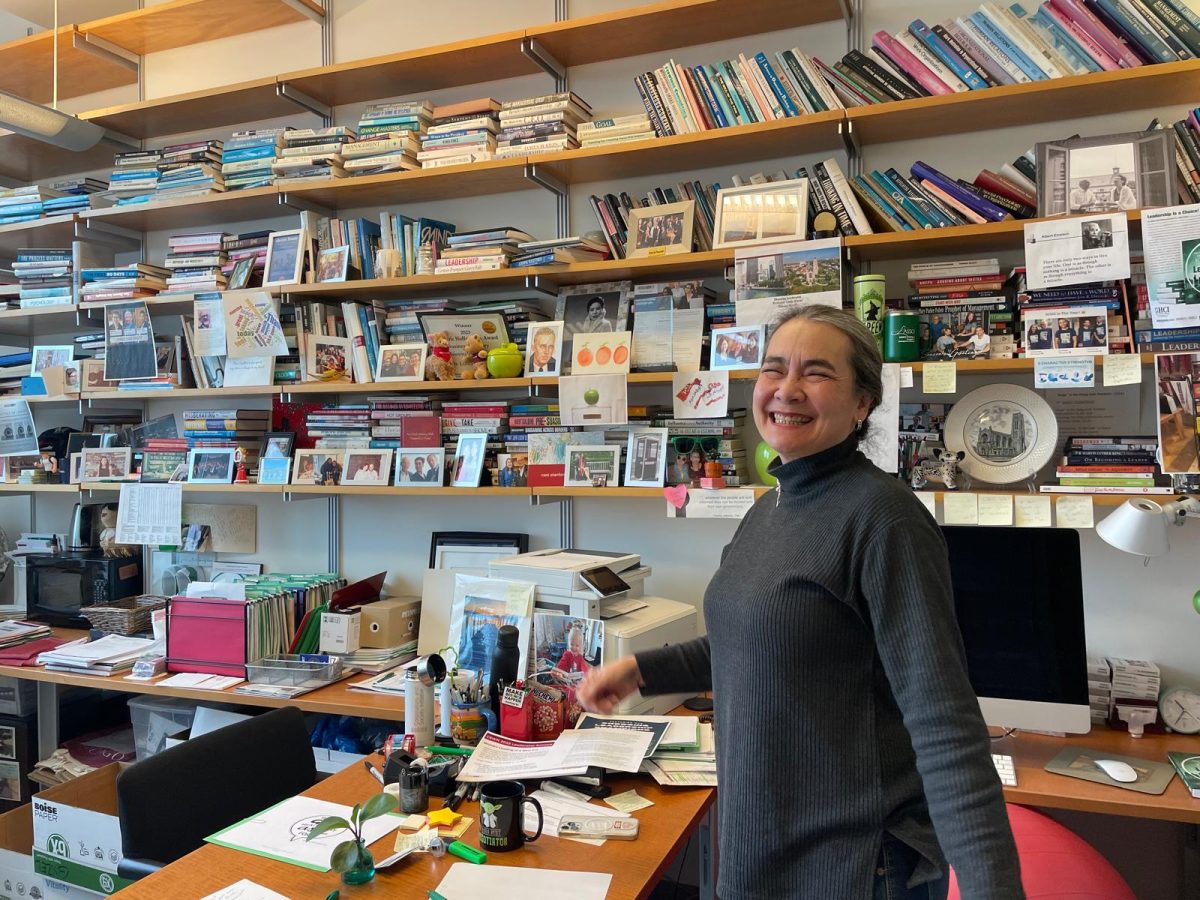JH: In your response to Krugman, you talked about good answers having a lot to do with mathematics, and having numbers behind them.
JC: Krugman had written some beautiful essays about how important mathematics is in economics. And the reason is because you get confused so quickly, and you need some way to keep track of all the gears and pulleys, and which one really is pulling which way, and which one is pulling that way. The technique of beautiful prose is just open to logical mistakes, and what the math does is it keeps you thinking straight.
Let’s talk about Keynesian economics. It’s so easy to write down that if income goes up, consumption will go up. Duh. If interest rates go up, investment will go down. Duh. But then to forget that consumption and investment both have to come out of the income; there’s a budget constraint lying behind them. It’s easy to forget about—you described eight things, but they all have to add up. How do you make sure that your eight descriptions all add up? I’m sorry, you gotta write an equation to do that. And that’s where math is useful.
It’s not like science, where it’s a literal description of reality. What we do are quantitative parables, which makes it hard. [Laughs] They have to retain their element of parable, they have to be a compelling story for what’s going on in the world, because they’re always abstract and simplified. But they have to be quantitative, because otherwise, it’s just so easy to make logical mistakes. Especially if you want to start talking about financial crises, and liquidity, and why do people run, and what are these effects—UGH. For centuries people work on this stuff, just writing more and more beautiful prose, and they never get anywhere.
JH: What about, again for us non-specialists who can’t look at the equations, but want to look at the popular literature or books that would be reviewed in the Times, are there names where you’d say, “This is someone a non-specialist could look to”?
JC: Well, you’re asking for arguments by authority again, which, as a Chicago person, I don’t like authorities.
Some popular writers are good, some popular writers are bad. What are you going to look for? Look for clear logic. Look for the absence of partisan political views; if your writer seems to think that either Democrats or Republicans are right more than 50 percent of the time, he’s got an axe to grind. Look for documentation with facts, not just spewing out lots and lots of statistics. Umm…Levitt’s good! Look for “University of Chicago” on the branding. Those are good keys.
JH: I think a lot of non-specialists have had difficulty understanding what’s going on in economics. Is that a problem, that so many people are totally perplexed by what’s going on in the economic crisis, or in economics in general?
JC: Specialists don’t know what the heck’s going on. The key is, the people who pretend to be experts don’t have a whole lot more knowledge than you do, which is one of the reason that I tend to argue against big government programs to solve a lot of these problems. I know that the guys with their hands on the wheel don’t know a whole lot more than I do about how the machine works, and my tendency is when you don’t know how the machine works, to drive very carefully. [Laughs]
JH: Did you take economics as an undergrad?
JC: Yeah, I did. I was at MIT studying physics, and economics was my humanities distribution requirement.
JH: [Laughs] Are there points of the Intro to Micro–Intro to Macro curriculum that you still rely on today? Things that remain particularly useful for you, or just in general?
JC: You bet. Actually I loved micro, and I went to grad school thinking I was going to do micro. My problem was I was not as creative as Steve Levitt. Micro’s beautiful, but it seemed to me like all the answers had been found, so I went off into macro because it seemed to me like a field where—how can I put this politely?—a field where nobody knew what the heck was going on, and therefore I could make some contribution as a researcher.
But I’ll come back to that moment where I became an economist, and that still sticks with me to this day. We were discussing welfare, and why it is that people get stuck on welfare, which is a problem that has bedeviled us for a long time, and lots of writers write about the culture of welfare and that sort of stuff. There’s a lot of moralizing, too; this was in the ’70s, with welfare queens and all this other stuff.
And so there I was in micro, and the professor wrote down the budget constraint. I’m sorry, I’m going to have to speak to those of your readers who have taken micro, but you look at the budget constraint at the time, and once you earn more than $15,000 a year, you start losing your apartment, your health insurance, your benefits, and so forth. And you look at the budget constraint and there it was: 100-percent marginal tax rate for earning anything over $15,000 a year, and bingo! We just wrote the utility curve and budget constraint, and you have people stuck there.
And that was the moment, because in thinking about this deep social problem, where so much moralizing and heated debate went, here’s this objective thing. And I though, “There but for the grace of God go I.” If you’re sitting at $15,000 and 100-percent marginal tax rate, you’re not gonna work.
JH: Yep.
JC: And so there was a value-free, objective way of addressing a social problem that pointed to how we can get out of this, without having to scream “You don’t care about the poor people” or “You like the capitalists” or so on and so forth. That’s the moment I became an economist. That I take with me. That’s what I love about economics: It gives you an objective, non-political, non-partisan, non-moral way of understanding cause-and-effect, and horrible unintended consequences of our policies.
JH: Have there been any other "Aha!" moments throughout your career that stand out as clearly as that one?
JC: Yeah. You asked about the research process. I did the little thing on health insurance recently; it was just a set of little hobby pieces, because I do finance normally. It was during Hillary-care, that whole brouhaha. I remember I was walking into work, I’d read the newspaper about, “Oh, these poor people with their pre-existing conditions,” and I remember it: I was walking past the park on 54th Street, and there it was—“Bing! Wait, I’ve got it.”
You can solve the pre-existing condition problem if people could buy insurance on their premiums, so that when your premiums go up, that’s an insurable event, just as if your house burned down. Bingo! There’s the idea, went into the office, wrote it down. It took me months to write the paper, solve all the problems, get it published, address the thing.
It’s not the idea—I get an idea like that every single morning. That one, I remember working it, and the about five ways I was wrong in my first hunch, and all the different things. That’s how it works.
JH: To finish up quickly: What was the best advice anyone gave to you while you were a student, or the worst advice? Whichever comes to mind readily.
JC: The worst advice I ever got was by a very-well intentioned advisor, who I won’t name because he’s someone I respect tremendously. And he said, “Don’t go to Chicago—you might end up spending your life there.” [Laughs] So there’s some advice that I’m really glad I did not take.
What I want to end on is what’s great about working here. It’s not so much about advice one way or the other. My time here has been built tremendously on this institution. Everything I’ve been able to do is because I am able to run around to people’s offices, and they give willingly of their time and tell me how things work, and ideas pop out from that. And nothing that I’ve done here would have ever happened if I’d been anywhere else. This is a magic place.
JH: And you really mean “anywhere else”?
JC: I am perfectly clear that nothing I have ever written would ever have happened if I had been somewhere else. Because I can remember all the little moments when I’m in Gene Fama’s office, or Lars Hansen’s; or my first paper, Bob Lucas just said something to me after a coffee, and bingo! He had it exactly right, and I was able to work that out. It’s not all that often. Once every couple weeks, there’ll be a little spark. Without those little sparks, I would be nothing.








